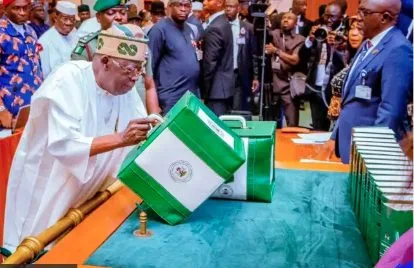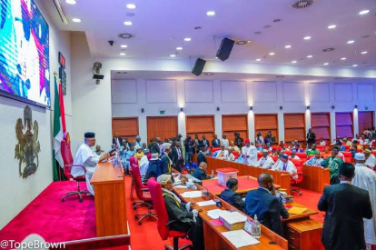The 10th Senate, under the leadership of Godswill Akpabio, passed the 2024 budget on Saturday.
This updated Appropriation Bill received approval from both chambers of the National Assembly.

While there was public outcry that some important ministries received little funding, there are some ministries that have found favour in the budget.
The budget was approved after its size was augmented from the initially proposed ₦27.5 trillion by President Bola Tinubu to the revised amount of ₦28.7 trillion.
The parliament increased the budget submitted by President Bola Tinubu by the sum of ₦1.2 trillion.
Special Session
This was revealed by the Chairman, House Committee on Appropriation, Abubakar Bichi.
You May Like: Senate Increases Tinubu’s 2024 Budget By ₦1.2 Trillion
It was after the conclusion of the special session on Saturday.
Highest Allocation
To Bichi, the ₦1.2 trillion increase in the budget was attributed to inflation and the commitment from Government Owned Enterprises (GOEs) to augment their revenue.
Here are some of the ministries that got the highest allocation.
In the approved budget, the Ministry of Defence received the highest allocation of ₦1.3 trillion.
Following closely, the Ministry of Police Affairs secured the second-highest allocation in the approved budget, amounting to ₦869.121 billion.
The Ministry of Education received ₦857.134 billion.
Also, the Ministry of Health and Social Welfare was allocated ₦667.577 billion.
The Ministry of Interior was granted ₦362.552 billion.
National Security
The Ministry of Youths received ₦201.467 billion while the Office of the National Security Adviser was allocated ₦199.763 billion.
Also, the Ministry of Foreign Affairs secured ₦140.456 billion while the Ministry of Agriculture and Food Security obtained ₦110.248 billion.
Furthermore, the Office of the Secretary to the Government of the Federation was granted ₦100.248 billion.
The Presidency received an allocation of ₦97.913 billion.
From the budget, one could say Nigeria’s insecurity issues is leading in what the government is concerned about.
Education is coming third, at a time that world body, UNESCO, says a minimum of 26% a country’s budget should go to the education sector.
A nation is as developed as its education system, but for the government of Nigeria, developing the education sector is a long walk.

